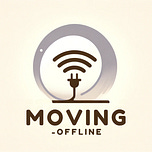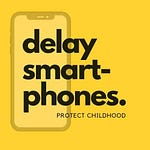Updates:
Low Tech Life is now available on Kindle Unlimited. If you have a subscription to Amazon’s Kindle service, you can now read for free :). Thank you for all the support!
The Dumbphone Finder has gotten an update. It will continue to be improved over the next few weeks. It can now filter by continent and regional network providers. More to come :D
Introduction
Social media often makes us feel like we never have enough. I recently watched a video where someone claimed, "If you don’t have a Lamborghini in your 20s, you should have a ‘serious’ talk with yourself." It was unsettling to hear someone suggest that owning a luxury car should be everyone's goal. For some, that might be their dream—to have enough wealth to buy whatever they want and flaunt it as a status symbol. For others, it's unnecessary—just an expensive car that serves the same purpose as any Toyota Camry: getting you from point A to point B.
Yet, this video raises an important question: What is enough? Our culture constantly pushes us to want more—faster, stronger, smarter. We're taught that more is always better and that simplifying or downsizing means failure. When I moved to Denver from Georgia and chose to live in a condo instead of a house, many people—including my parents—were disappointed that I was "downgrading." They saw my move from a 4-bedroom, 2-bath house to a 2-bedroom, 2-bath condo as a step backward. But for me, it was an opportunity to simplify: fewer things to worry about, no yard to maintain, no roof to replace, and a smaller payment over time.
That's my version of enough. Your version may be different, and it's important for everyone to define what 'enough' means for themselves. In a world where our digital and financial lives heavily influence our choices, it's crucial to set boundaries that guide how we live. Today, we'll explore what "enough" means in both the digital and financial parts of life, because to create a balanced offline life, it's important to start by understanding what 'enough' truly means for you.

Defining What 'Enough' Means for You
How do we figure out what’s enough? I call this the gut-check moment. "Enough" is highly dependent on context, but it's also about how you feel. Growing up in Nicaragua, my idea of enough developed early, shaped by life in a developing country. In a place where blackouts and water outages were common, enough meant having stability and holding on to what little you had. For many people in my country, enough meant having a home with a zinc roof, walls made of sticks, and food on the table every night. My family was considered "upper middle class" because we had a concrete home and two parents with full-time jobs. We had enough to buy toys and other small luxuries for my brother and me. In the context of Nicaragua, we had more than enough.
In the United States, however, the house I grew up in would be considered working class, possibly even in need of assistance. A developed country like the U.S. has an entirely different version of enough, but the word itself doesn't change. Understanding the context in which you define 'enough' is crucial to knowing what it means for you.
Although enough may change depending on context, the feeling is universal. It's like when you've eaten your favorite meal and feel satisfied—not too much, not too little, just right, like the Camote Asado from Alma Fonda Fina. It's the feeling that comes when you hear phrases like "9-bedroom, 5-bathroom home" or "iPhone 16 Pro Max." Maybe you feel desire, maybe you feel aversion, but your gut doesn't lie. It speaks to what your heart truly wants.
The first step to defining enough is to listen to your reaction. If the feeling is warm, pursue it. If it feels cold or off-putting, move away from it. Make a list of what 'enough' looks like for you and use it to create a plan. Here are some questions to help you determine what's enough in your life:
What areas of your life do you want to prioritize the most, and how can you allocate your resources to support them?
Which possessions or experiences bring you the greatest joy and add true value to your everyday life?
How can you design a balanced week that focuses on stability instead of hecticness?
What goals align with your ideal life, and how can you create a plan to achieve them while staying fulfilled?

Overcoming Society's Expectations
When I did this exercise of defining enough, I was surprised by what made it onto my list. My version of an 'enough' life included simplicity: a comfortable home for my family—no larger than 2,000 square feet, no smaller than 1,000. A place within walking or biking distance (1-2 miles) to most amenities like the supermarket, entertainment, and a few restaurants. One car and two bikes for getting around without needing frequent upgrades. Four days of meaningful work with three days to decompress. A job that allows me to disconnect, and a lifestyle that is sustainable on a single household income.
These parameters don't mean that my idea of enough won't change. It doesn't mean I can't make more money, cut my spending, or want a nicer house. It simply means I have defined what enough looks like for me right now. Breaking free from societal pressures requires assessing what genuinely matters to you—not what others think you should have. Defining your own version of success and contentment is key to finding enough. It means being able to envision your future life and feel at peace with it. Once you define enough, you can simplify the financial and digital aspects that make that life difficult to achieve.
With a clearer sense of what enough means and a willingness to reject societal pressures, the next step is to look at your finances. Financial simplicity can significantly reduce stress and help you focus on the aspects of life that bring genuine joy.
Financial Enough
Once you have defined the lifestyle you desire, it becomes easier to see where you have excess or where you need to put in more effort. If you want a bigger home but are struggling to save for it, that's a signal that you'll need to make sacrifices to achieve that goal. If it's truly important to you, then focus on it rather than letting life just happen. On the other hand, if you realize what you have is too much, then make plans to downsize.
A few years ago, when I switched to a Light Phone 2—my version of enough for a phone—I realized I didn't need an unlimited data plan. It felt excessive to pay for all that data when the phone only did basic tasks and didn't need constant internet access. My plan with Verizon at the time was more than enough, so I started looking for alternatives. That's when I learned about MVNOs—companies that provide the same service as the big carriers but at a lower cost. I switched to US Mobile, which gave me unlimited talk, text, and 1GB of data for $6 per month. I identified the excess—$50 per month—and adjusted my expenses to align with my vision of enough. Not only did I save money, but I also started living more in line with my values.
Conversely, I decided to increase my spending on cafes and restaurants. I realized I was missing out on simple joys like a latte or dessert because I was too focused on saving money. I was more interested in the number in my bank account than the experiences in my life account. I came to understand that I can save for emergencies and plan for the future without sacrificing my present happiness. Instead of only prioritizing my future self, I also need to consider what 'enough' looks like in my daily life and make room for joy now.
Here are some questions to help you determine what's enough in your financial life:
What are the top three expenses that make you happiest, and how can you spend more on them?
Which expenses could you eliminate without feeling a significant loss of happiness?
Are you automatically saving enough for your future goals, like retirement or a big purchase?
How can you optimize your spending to align with the life you want now and in the future?
After simplifying your finances and educating yourself on resources about the good life, it's time to consider your digital life. Just as with finances, setting boundaries and defining enough in the digital realm can free you from unnecessary distractions and help you live more intentionally.
Digital Enough
We are currently facing a crisis of digital excess. Cars, homes, work, and even parks now have more online interactions than real human experiences. Defining "enough" in our digital realm is more crucial than ever. Some people are switching to simpler phones, while others seek more offline community experiences. Living offline also means defining what "enough" looks like for your digital life.
Start by questioning what you truly need from your digital tools. Do you need to be constantly connected to social media, or can you cut back? Do you need all those apps on your phone, or can you uninstall the ones that don't add to your well-being? Is being connected to your inbox all the time truly making you a better employee, or are you just filling time because you struggle to find meaning in your profession?
A key part of this process is setting boundaries. You might decide that enough means spending only an hour a day on social media or not using your phone during meals or family time. Committing to digital detox days or weekends without your phone can make a big difference. Over the past month, I've experimented with an alternative approach: one week off from the internet, followed by one week on. During my offline weeks, I found I could create better recipes, think more deeply, and read books I was genuinely interested in. I also made the most of my online interactions—knowing that I wouldn't have access the following week made me prioritize my digital time with meaningful activities instead of wasting it on cat videos. I've felt less distracted and realized how much my life improved by alternating one week online and one week offline.
Here are some questions to help you determine what's enough in your digital life:
Which digital tools make the biggest positive impact on your life, and how can you use them more intentionally?
How can you limit social media to a level that keeps you connected without overwhelming you?
Which notifications can you turn off to reduce distractions and increase focus?
What boundaries can you set for your digital use to prioritize real-life experiences and relationships?
Conclusion
Living with 'enough' means making conscious decisions that align with what truly brings value to your life. It means defining success and contentment for yourself rather than letting societal pressures dictate your choices. By simplifying your financial habits, setting clear boundaries in your digital life, and being intentional with your resources, you can create a life that feels rich and fulfilling without excess.
Start small—whether it's canceling unnecessary subscriptions, reducing digital distractions, or spending more on things that genuinely make you happy. Remember, finding balance is a journey, and what feels like enough today may change in the future. The key is to stay mindful and continually reassess what 'enough' means to you.
Take charge of your life by focusing on what matters most and letting go of what doesn't. By doing so, you'll create space for joy, peace, and purpose in an increasingly connected world.














Share this post